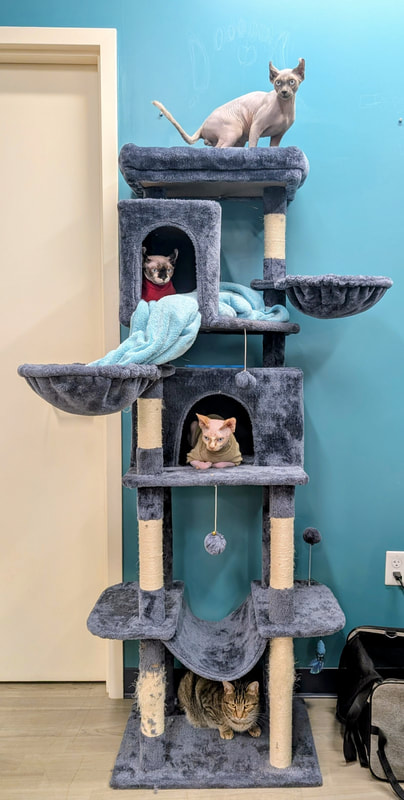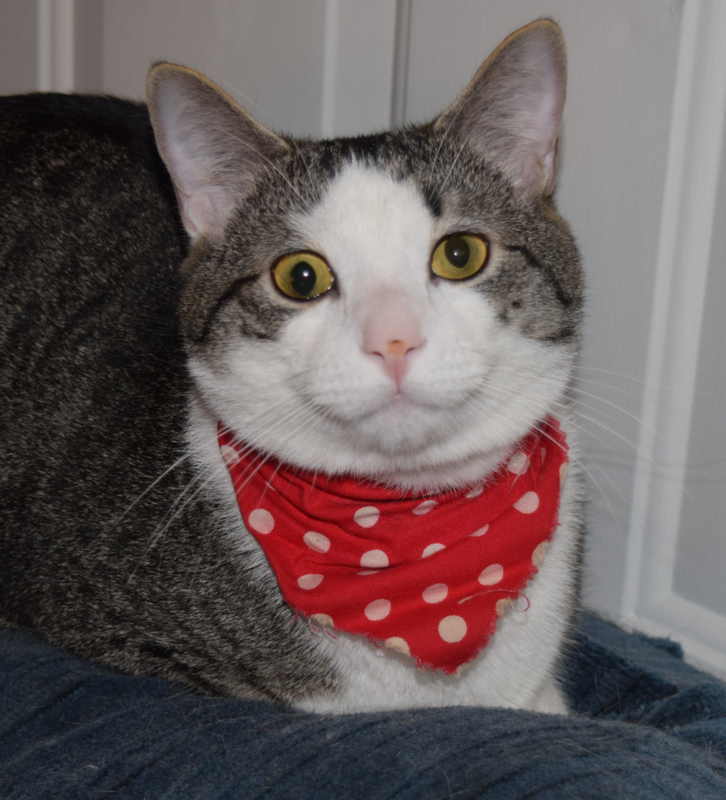Cat Wellness Information:
|
Do you know your cat's FIV/FeLV CURRENT Status?

FIV/FeLV Testing:
If you answer YES to any of the following questions, your cat should be re-tested for FIV (Feline Immunodeficiency Virus) and FeLV (Feline Leukemia Virus) at their visit:
Why is testing important?
If you answer YES to any of the following questions, your cat should be re-tested for FIV (Feline Immunodeficiency Virus) and FeLV (Feline Leukemia Virus) at their visit:
- Has your cat never been tested for FIV/FeLV?
- Since their last test, has your cat been outdoors or exposed to other cats?
- Do you have other cats in the home whose FIV/FeLV status is unknown?
Why is testing important?
- Knowing your cat’s status helps us provide the best care.
- If your cat tests negative, vaccination against FeLV can help keep them protected.
- If your cat is positive, early intervention matters.
- For example, if a healthy cat develops mild cold symptoms or a small limp, we usually monitor at home first—just like your human doctor would.
- But if your cat is positive for FIV or FeLV, they are considered immunocompromised. That means even minor issues may need veterinary attention right away.
Parasite and Bloodwork ScreensFeLV/FIV and Wellness Panel:
This panel includes testing for FeLV (Feline Leukemia Virus) and FIV (Feline Immunodeficiency Virus), along with a red and white blood cell check. Why consider this test?
Senior Wellness, Heartworm Antigen Testing, and UrinalysisThis comprehensive screening includes all of the above, plus additional tests:
|


